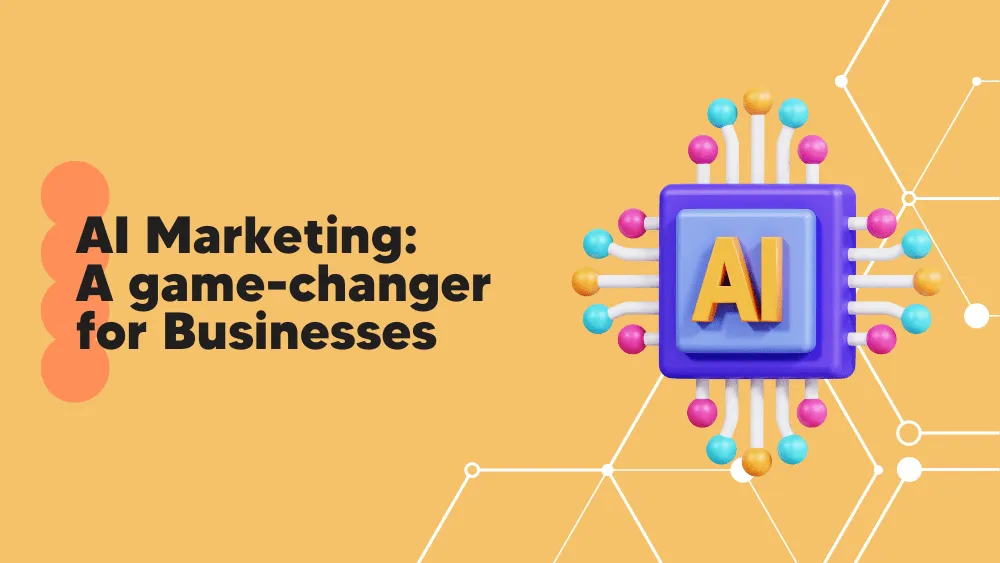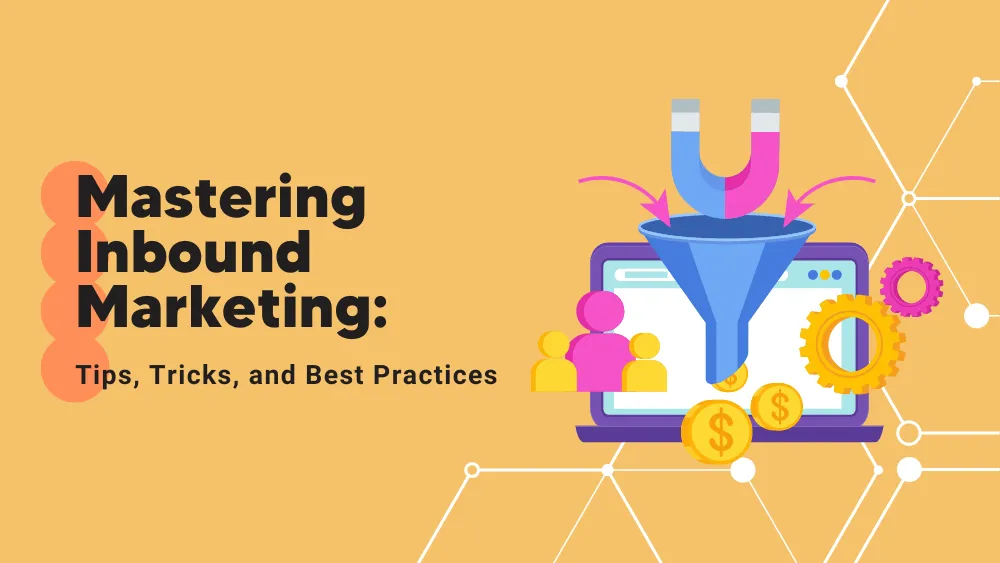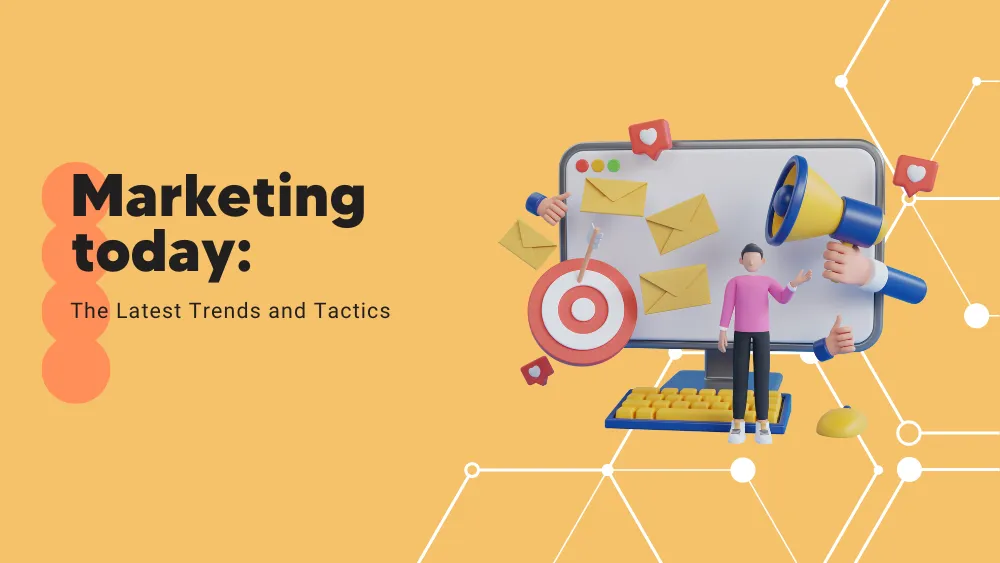Table of Contents
We all already know that Marketing is a main piece in the business game. Once, Henry Ford said: “A man who stops advertising to save money is like a man who stops a clock to save time.” The quote serves as a reminder that advertising and marketing are essential investments for a business’s long-term growth and success, usually giving an example of investing 4 dollars in time he has 5. That may be why under the number 4 on your keyboard persists the $ symbol, but maybe it’s a coincidence.
Over the years, marketing has drastically changed because everything is to reach your customers or receive new ones, advertising based on their behavior and preference, which are changing over time. Nowadays, a game-changer for businesses represents AI technology in marketing and not only, almost all possible fields.
What is AI in Marketing?
Staying current on the latest trends and technologies is important as a marketer. Otherwise one such technology that is making waves in the industry is artificial intelligence in marketing. AI in Marketing stands for the AI technology used to automate decisions, and tasks, based on data analytics, data collection, customer behavior, and trends that can impact the marketing industry.
The most used field of AI in marketing represents digital marketing, where AI offers incredible marketing tools to speed up the process. These tools use data and customer profiles to learn how to communicate with customers effectively. For many digital marketers today, AI marketing tools are used to raise marketing teams or to perform more tactical tasks that require less human nuance.
AI and Customer Data
Let’s get deeper into how AI tools can gather and analyze customer data. With the increased amount of data being generated by customers, enterprises face a formidable challenge in managing this data effectively. Much of this data is unstructured, which makes it difficult to store, aggregate, and integrate. Moreover, using the integrated data and applying AI-based technologies to make informed decisions across the organization is critical.
AI makes some magnificent upgrades to marketing data-collecting tools, and here is the list of these implementations:-
CRM AI-powered
CRM AI-empowered refers to using artificial intelligence in customer relationship management software. A good example is Salesforce Einstein, the AI tool introduced in Salesforce product CRM. This technology allows businesses to analyze customer data and behavior to improve interactions and provide personalized experiences for better customer satisfaction. As a result, Salesforce Einstein can easily forecast future sales trends and outcomes based on analytics and machine learning.
-
Data analytics platforms
Also called business intelligence platforms, they are used to gain insights into client behavior and preferences. These platforms allow businesses to analyze customer data (that’s foreseeable from the nametag), enabling specialists to understand better customer purchasing habits and create useful data for the next product or service improvements.
-
Marketing automation
What kind of marketing can exist without campaigns? As a result, marketing automation is AI software based to automatize marketing campaigns based on the data gathered and customer behavior. Consequently, those marketing campaigns are especially targeted and personalized for every customer. Also, this AI tool can be used by marketing departments to automate repetitive tasks such as email marketing and social media posting faster and more efficiently.
-
Social media monitoring
This AI technology helps businesses track mentions of their brand and products across social media platforms. These tools are essential in identifying areas for improvement and gaining valuable insights into customer sentiment. A social media management platform can get your placement ahead of influencers and identify opportunities to pick up where they have failed.
-
Email AI-powered
This one can analyze the data from past campaigns. It determines the optimal time and day for sending emails to a specific audience. This allows for more effective email campaigns in the future. Emails are sent to customers based on their demands and contain personalized deals and products that the customer may be interested in. This ensures a high level of personalization.
Using AI in marketing for collecting data has a great list of advantages that businesses are gleeful to benefit from, and everyone can:-
Swiftness and usefulness
AI tools work more efficiently when it comes to gathering data about customer behaviors than the human force. Besides efficiency, it is faster; AI can work with a huge amount of data simultaneously, saving time and resources.
-
Precision
AI algorithms can be designed to reduce errors and inclinations in human data collection. AI marketing tools also reduce human errors and allow employees to focus on heavier tasks that require creativity and low attention pay.
-
Enhanced research
The AI technology can research data from multiple sources to collect data, enabling organizations to gather and analyze more data than human resources alone can. Nevertheless, this digital tool can find hidden sources for human search.
-
Gained Insights
At the end of the data collection process, AI can identify possible trends or threats. Before taking action, businesses analyze those result for a well-taken decision.
-
Cheaper solution
It can be a cost-effective solution based on multiple factors. For small and medium-sized businesses, it would be a better option than a whole team for collecting data. But the best option for collecting data is to create a hybrid collecting data team empowered with AI tools. Even if AI marketing tools were made to help us, everything goes differently than planned; with the bouquet of benefits, it comes with some potential drawbacks when discussing data collection with AI.
-
Data privacy
Our data is always important and not only in business. As a result, collecting data with some AI tools can cause problems, for example, providing data that is not open source. To skip this problem, businesses should use AI tools with human employees to ensure the collected data is legal and does not overstep intellectual property or privacy rights.
-
Biases in data
It’s important to remember that the accuracy of AI algorithms is highly dependent on the data they are trained on. If that data is complete or biased, the insights and decisions generated by the algorithm can be correct. Companies must ensure that AI systems are trained on diverse and representative datasets to minimize potential biases.
-
Bad quality data
It’s important to remember that the accuracy of data collected by AI is directly tied to the quality of the algorithms and data sources used. Calling back to the Biases in data, if we don’t train our AI-empowered also with ML, the results from AI would be of a low quality.
-
Technology Dependence
This drawback is the worst that exists. Automating everything and working only with technology can cause big problems with downtime when the AI has any issues. Also, because of this dependence, the automatization of tasks by robots causes the loss of our physical health through the loss of the need to exercise, work, moving.
-
Deficiency of context
This disadvantage talks about AI algorithms not having enough context to analyze the collected data, which can cause wrong results. And one more time, that’s why getting a human in touch with the AI tool is a great option for making a decision. Giving AI more oversight will free it from issues.
AI Content Creation
We will start with the question, “What is content?”
When examining AI in marketing, especially in content creation, we explore how AI technology can generate all the elements established on specific parameters or data sets. AI-powered content creation introduction tool can also analyze statistics from previous email campaigns to decide the first-class time of day and day of the week to ship future emails to a particular target market.
It might also examine social media records to perceive the channels wherein the target market is most energetic and engaged and use those statistics to create tailor-made content for the channels.
Benefits of using AI-powered content tools
Now, let’s discuss the numerous benefits that come with the integration of AI technology in the process of content creation.
-
Efficiency
AI-powered content creation tools can automate many responsibilities that would, in any other case, be time-eating and resource-in-depth, such as research, records analysis, and even writing faster than human power.
-
Personalization
For a better customer experience, AI can examine customers’ behavior statistics to create content tailored to precise audiences, growing the relevance and effectiveness of the content.
-
Consistency
When we talk about a text or published articles, AI technology can ensure that created content material is regular in tone, style, and messaging, which may be challenging to reap with human writers. A great example would be GrammarlyGO, an AI text generation that helps writers rephrase, improve, and make the text persuasive or assertive.
-
Scalability
AI can quickly and effectively create huge volumes of content material, which may benefit organizations that want to create content at scale. Using an AI like ChatGPT-OpenAi, starting from a simple question like “What is Marketing?” users get answers equal to 150+ words. If a knight sharpens his blade so well as to cut through almost everything, it does not mean that his opponent cannot use it against him; as a result, even though AI marketing tools come with great opportunities, especially in content creation, it also has some potential threats.
-
Lack of creativity
Artificial intelligence in marketing might also disturb the creation of special and unique content, even used by a great writer with a great style. Because AI is programmed strictly based on a code, it cannot match the human brain.
-
Limited accuracy
AI will only periodically be accurate in its statistical analysis because of the cheap quality of training data or wrong understanding of human emotions, which can cause incorrect conclusions and suboptimal content material introduction.
-
Absence of emotional intelligence
Robots cannot apprehend or deliver surely the nuances of human emotion. They may need help with the process of creating content material that connects with audiences to an emotional degree linked with a human operator.
-
Dependency on generation
Relying too heavily on AI for content creation might also result in losing human skills like writing, thinking, and hand shape. This type of AI tool should be for the content writer as a gifted pain which helps to get in a new shape at writing content.
AI in the advertising landscape
The advertising landscape represents an increased use of artificial intelligence and machine learning in the advertising industry. As a tool for advertisers, AI can analyze large amounts of customer data to identify marks and trends that can help develop ads.
Moreover, with the use of AI, ad placement, messaging, and targeting can be optimized in real time by analyzing customer data. This is done by adjusting ad targeting to match user behavior and preferences and modifying ad messaging based on performance metrics like click-through rates or conversions.
Conclusion
Businesses can greatly benefit from AI technology, which has proven to be a game-changer. Although there may be potential threats, companies must implement AI to stay ahead of the curve and reap its rewards. To minimize any potential downsides, businesses must integrate human marketing specialists with AI technology in their marketing strategies.





